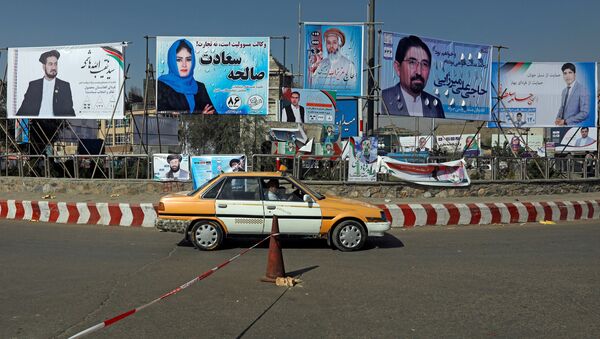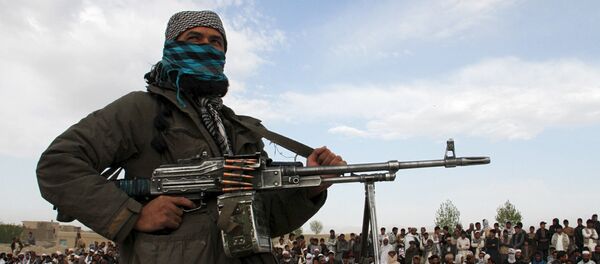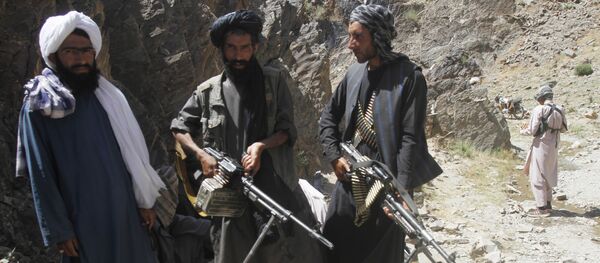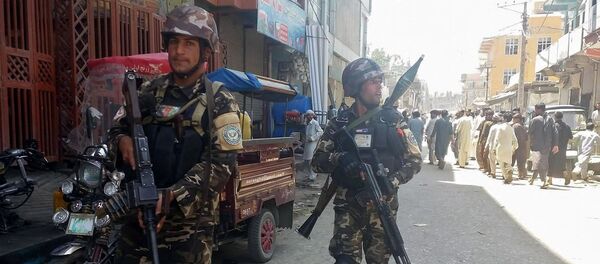The term of office of the current parliament expired back in June 2015. The next election, initially scheduled for 2016, was repeatedly delayed over the unstable security situation in the country. The powers of the parliament were extended by a presidential decree.
The much-anticipated election comes amid several attacks on election rallies and campaign offices and the Taliban militant group's reported threats to target polling places during the vote.
Procedure
More than 2,500 candidates will compete for 249 seats in the lower house. A total of 205 candidates, which is less than 10 percent of those running in the vote, represent 26 political parties, while the others are registered as independent candidates.
READ MORE: US General Doesn't Believe He Was Target of Deadly Attack in Kandahar — Reports
The vote is expected to be held in 32 provinces of Afghanistan. The only two exceptions are Ghazni, where the vote is scheduled for spring 2019, and Kandahar, where the election was delayed by a week in the light of the attack on the governor's office.
Preliminary results of the elections are expected in early November, while the final outcome will likely be announced on December 20.
Apart from drafting and adopting laws, the powers of both houses of the parliament include voting on government plans and appointments for certain offices, approval of the state budget, the ratification of international treaties and agreements. The exclusive powers of the lower house are to initiate a vote of no confidence in government and impeachment proceedings.
Atmosphere of Mistrust
A July Gallup poll showed that the vast majority of Afghan respondents – 76 percent – do not trust the electoral process.
According to the survey, such an attitude stems from the 2014 presidential election, which was marred by mass fraud allegations, while the formation of a national unity government became the only way to resolve the conflict between the two main candidates.
READ MORE: Explosion at Election Campaign Office in Afghanistan Kills 10 — Official
The research suggested that skepticism toward election transparency could discourage the electorate from voting this time. It is noteworthy that the previous parliamentary election showed a 40-percent turnout, according to the Independent Election Commission of Afghanistan.
The implementation of biometric voter registration was meant to allay mistrust of the voters, yet latest reports suggesting that the election body creates hurdles for the vote's media coverage only contribute to mounting concerns.
Terrorist Threat
Mendkovich noted that over the recent years militants had managed to expand zone of their control, which makes voting in many areas impossible.
"Since the Taliban considers the elections illegitimate, there is a huge risk of terrorist attacks on the election day, and people will simply avoid going to polling stations," Mendkovich told Sputnik.
The expert suggested that the latest terrorist attack in Kandahar could be interpreted as extremists’ signal to the authorities.
"It is very important, again, to take into account that the escalation of the armed conflict in the country is perceived as the government’s failure, which will have a negative impact on the election performance of pro-government forces," he said.
International Recognition
International recognition of the election results remains an important factor.
In early October, the UN Mission in Afghanistan expressed its concern over the violence spike in the run-up to the parliamentary election, "including intimidation and attacks against candidates, their agents and supporters."
READ MORE: Bomb Blast at Electoral Campaign Event in Eastern Afghanistan Kills 7 — Reports
The statement came as a reaction to the suicide attack that killed at least 14 civilians and injured 42 others during a campaign rally in Afghanistan’s eastern Nangarhar province on October 2.
The United States has mainly refrained from a public assessment of the circumstances surrounding the Afghan vote, which could be regarded as a signal of support for the policies pursued by President Ashraf Ghani.
Another possible explanation is that the vote has an important role for Washington in terms of internal politics. Afghan media suggested that the United States would like to see progress in democracy in Afghanistan as a result of its 17-year military presence in the conflict-torn country.
*Taliban is a terrorist group banned in Russia
The views and opinions expressed by the speaker do not necessarily reflect those of Sputnik.





